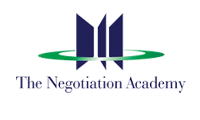| Sales Negotiation Strategy |  |
| Discover how your sales negotiations team can enhance their training programs. Increase the selling power of your company with any client. |
Just how many sales negotiations courses are being offered in today's marketplace? It all depends on the industry where you find yourself employed. There are probably hundreds of different sales courses where you can learn to negotiate. On one end we have sales and procurement training and methodologies that concentrate on specific industries. They might entail particular levels of complexity involved in the type of sale. At the other end, we have generic industry sales programs which focus primarily on the interaction between a buyer and a seller. Examples of the first kind of sales training include sales programs offered by the likes of Miller Heiman, Target Account Selling etc. Examples of this second type are those sales course focus on the "7 ways to close a sale" type approach.
With the exception of one or two of these providers, there are very few sales courses that really cover the topic of negotiations. As a vital feature of the sales process, negotiations has been sorely neglected. Especially where intricate sales negotiations are concerned, buyers have been utilizing experienced negotiators for years. These purchasing professionals have successfully dealt with sales people who are well based in the art of selling, even complex selling, but they possess little or no comprehension of the essentials of negotiations.
Buying and selling are at opposite ends of the scale, but they are both part of the same scale. If sellers are aware of the reasons and the manner of how organisations buy, shouldn't they be even more successful in selling their products and services? Despite this logic, sales training programs, and this includes the complex sales training programs, many businesses have neglected this particular area.
What exactly is sales negotiation?
The opposite of sales is purchasing. Large organisations frequently use specialist purchasing resources to negotiate supply contracts. They base their approach on the strategic and tactical objectives of the applicable department or organisation. These specialists are usually seasoned negotiators who spend most of their time negotiating contracts with suppliers. They are more than competent enough to stand up to sales resources pumped full of product knowledge and complex selling theories.
Complex selling strategies are moulded to the intricate decision making processes used by large government and corporate entities. Yet, rarely do they concentrate on the negotiation strategy employed by the buying organisation. How frequently do salespeople find themselves at the receiving end of a shrewd negotiation strategy exercised by the buyer? In many instances the salesperson may not even realize they are actually involved in a negotiation. Normally, once an agreement has been reached, the sales person will refer the agreement to the legal department, or applicable authority, who will then participate or pursue the negotiation process to shape the final contract.
The quandary is that once the deal has been sold, most of the negotiation has already occurred. Sales negotiations begin well before the first contact with a prospective customer or supplier. It originates with the outlining of the corporate or enterprise wide sales negotiation strategy which should cover things such as:
Sales preparation strategy
- This should cover things such as what clients are you focusing on?
- What are the strategic issues faced by your clients?
- What is their recent purchasing history?
- What economic influences are affecting your customer's industry?
- What key things would this client would want from a supplier?
- What likely purchasing strategies would this client pursue given the available information?
- What margin authority is assigned to your individual sales resources?
- Use role playing by assuming the role of the client and then negotiate a practice deal. You will be pleased with how much you will learn from this simple exercise.
Sales team skills audit
- Do your sales personnel possess a solid grounding in the basics of negotiation skills?
- Do your sales resources have the necessary presentation and communication skills to handle sensitive negotiations?
- Have your sales personnel been formally trained in a complex selling methodology?
- Has your sales team taken any sales technique training programs?
- What sort of training system do you have for new recruits?
Supporting technology strategy?
- Does your sales team possess the necessary technology at their disposal to support and empower the team to negotiate effectively?
Knowledge management strategy
- Is relevant documentation available throughout the organisation? After all, how many contracts are negotiated in isolation?
- Is sales/company/purchasing and other information readily available?
- Do sales resources know the same information about your company that the client's purchasing team will likely know?
- Does your purchasing team and the legal department interact with your sales team at a meaningful level?
I realize that some of these points may appear all too obvious, but it is striking how many organisations simply ignore the basics.
What to do to improve your sales negotiation effectiveness:
- If the recipe for success in the retail business is location, location, location, then the recipe for success in the sales negotiations is prepare, prepare, prepare. As a rough guideline, you should spend around three times as much time preparing for a meeting with a client, as opposed to the amount of time spent in anticipating the meeting.
- Research your client's recent behaviour in the market to gain a more thorough understanding of their actions. What sort of large contracts have they recently concluded? Do you comprehend the client's strategy in how they procure services and products in your sector? You will be amazed at how readily you can acquire some of this information. Make arrangements to meet with your client's head of procurement and ask them to describe their purchasing strategy for the forthcoming year.
- Ensure that your sales resources understands that negotiations begin the moment they first introduce themselves to the client. Make sure your sales resources fully understands the concepts of negotiation preparation, framing, positions, interests and common ground.
- It is crucial that your sales team learns and understand the dynamics of power. Sales resources often believe that all the power rests with the buyer. This is simply untrue. In many instances the seller has much more power than the buyer. Buyers, however, are usually more adept at negotiating large contracts. Through understanding the real power dynamics that exists, your sales team will gain a big boost in their confidence levels.
- Spend more time with your buyers. Arrange for your sales team to spend meaningful time with your corporate purchasing team. This should also include the legal department. Align yourself strategically by involving your senior purchasing experts in your target customer accounts.
- Use your senior purchasing executives to spend meaningful time with your sales team. Have them explain and describe recent purchasing negotiations that they performed with one of your suppliers. This will give you a valuable insight into the mind of the buyer.
Selling skills is not the single reason behind a successful sale. It is crucial to remember that negotiations begin the moment you first connect with your prospective client. A successful sale is about ending up with win more/win more results. This can only occur when both organisations believe that they have benefited from the transaction. It is vital to remember that most complex sales entail long term relationships, and most of the resulting intricate agreements include maintenance components, guarantee periods etc. If either of the parties do not believe they have achieved their goals as a consequence of this transaction, they might come to believe that no agreement should have been struck at all. It is as vital to know when to walk away from the wrong kind of deal then it is to strike win more/win more agreements.
Back to Negotiation Articles
We welcome the republication of this page's contents in part or full - we just ask that you include a clean link back to this site, to our www.negotiationtraining.com.au/training/ page.
|
Reader Comments
Average Reader Rating:
share your comment |
|
|
No comments |






Reader Comments
Average Rating:
Total Comments: 0